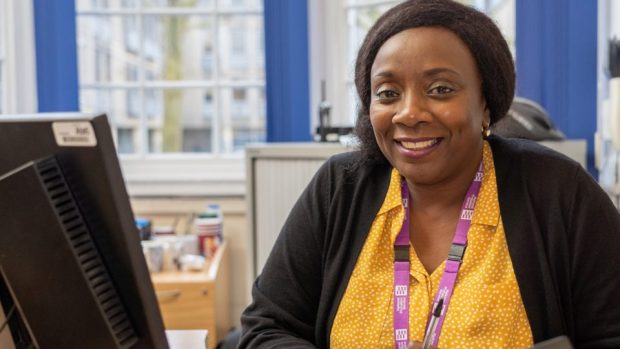
Approved Premises (APs) are commonly known as probation hostels. They are residential units in the community which house and closely monitor offenders.
Residential Officer, Cynthia has worked for the probation service for over 23 years, she shares her insight and experience into working in an Approved Premises.
Introducing the prison leaver to the Approved Premises
Offenders are usually sent to live at an Approved Premises (AP) because their probation officer decides they need extra monitoring following their release from prison to protect the public. My job as a Residential Officer is to supervise those who come to live at the AP.
Before an offender arrives at their Approved Premises, their key worker provides us with information about them as well as what time and day they’ll be arriving. The key worker also provides a risk management plan which identifies what level of supervision they will need and any licence conditions. Licence conditions are like rules, it’s what offenders need to follow as part of their sentence. For example, they may need weekly drug or alcohol tests or have a curfew. The Approved Premises already has a curfew of 23:00 – 6:00 but their additional curfew may require them to sign in at the AP reception at specific times. This might seem quite restrictive to some of the residents but a lot of them find it helpful. It puts distance between them and the behaviour which might lead them back to offending.
Having that intensive supervision is important to ensure the person is properly supervised and monitored.
That’s the purpose of the Approved Premises, but whilst the offender is with us, we may find that they have other issues that have never come to light before – for example, a learning difficulty or a mental health condition. So, whilst they are living here, we can begin to unpick those issues and help them to get the relevant referrals they need such as medication, which they probably wouldn't have done if they just went straight back into the community. We also have clinical psychologists who do 1-1 work or wellbeing groups once a week with the residents. During the coronavirus pandemic we’ve had to adapt and residents have these sessions through the phone at the moment.
There’s a lot of support here at our Approved Premises and this is a huge factor in keeping the public safe.
We do a lot of things to help offenders reintegrate and transition back into society. They are usually with us for three months; however some will be there less, others for longer. So, when they first come out of prison, they arrive at their Approved Premises and the first thing we do is give them an induction. We show them around, inform them about the rules and procedures and then take them to their room. They are met with their key worker alongside a residential worker (me or my colleagues). Within the settling-in period, we work with them to help set up universal credit, set up bank accounts and sign on with a GP surgery. We also help them to engage with all their appointments. We set up a support network for them, this is really important because some residents won’t be in an Approved Premises in their local area for various reasons so having a support network helps them to feel more settled. Also support networks are vital, we find that offenders who have a drug addiction, for example, are more likely to relapse if they go back to the same associates, so we help them engage with drug support to address their problem. All of this work helps to reduce the risk of them reoffending and is a key part of how the Probation Service keeps the public safe.
I’d say it's one of the main differences in an offender having their own accommodation. We have purposeful activities for residents to get involved with to provide that distraction. We do have residents who self-harm and have suicidal thoughts, so we’ve got an observation room which gives them the space and time to reflect. We also have staff on rota that work 24/7, wellbeing staff, and we provide all residents with contacts to mental health services such as Crisis teams so there’s always people available to speak to residents if they are feeling low.
I do think the biggest misconception is people aren’t really aware of the intensive supervision that’s provided.
As part of the supervision and monitoring, we also do room checks. We check whether the residents are in or out and we also do room searches. Depending on the offence, the offender may need to disclose the number of mobiles they have on the risk management plan so we’d be looking for anything they shouldn’t have.
Offenders need to be ready to make that change, we can motivate them and help them, but they need to be willing to change themselves.
We help them to see what’s needed to change in their behaviour and hopefully once they’ve come to live here, get the support they need, they will end that cycle of reoffending. It might not happen in the first few weeks or months, but it might kickstart that change in them. The longer you can keep people out of prison, the more they won’t want to go back.
I’ve worked for the probation service for just over 23 years. I really do enjoy it, I like the enhanced supervision, having the ability to pro-socially model good behaviour and have an impact on people’s lives. I feel that if you want to have an impact on people, on offenders from all walks of life, if you enjoy that sort of work then this is the best place to work.
Find out more information here: https://jobs.justice.gov.uk/role/approved-premises/
1 comment
Comment by Andrew Bridges posted on
Excellent account Cynthia - thank you.